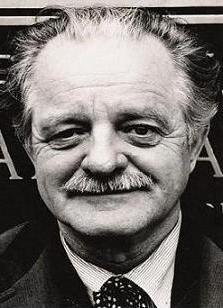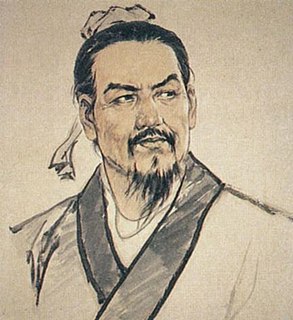A Quote by Benjamin Rush
Such is my veneration for every religion that reveals the attributes of the Deity, or a future state of rewards and punishments, that I had rather see the opinions of Confucius or Mahomed inculcated upon our youth than see them grow up wholly devoid of a system of religious principles.
Related Quotes
The promulgation of the great doctrines of religion, the being, and attributes, and providence of one Almighty God: the responsibility to him for all our actions, founded upon moral freedom and accountability; a future state of rewards and punishments; the cultivation of all the personal, social, and benevolent virtues-these these never can be a matter of indifference in any well-ordered community. It is, indeed, difficult to conceive how any civilized society can exist without them.
The moral issues with which Marcus struggles would be, as he points out, unchanged whether the universe were mechanical and devoid of meaning or value or ruled by deity or Providence; whether the will were in fact free or determined; whether there were or were not a future life, or any even fugitive rewards and punishments at all.
Almighty God hath created the mind free. All attempts to influence it by temporal punishments or burthens...are a departure from the plan of the holy Author of our religion...No man shall be compelled to frequent or support religious worship or ministry or shall otherwise suffer on account of his religious opinions or belief, but all men shall be free to profess and by argument to maintain, their opinions in matters of religion. I know but one code of morality for men whether acting singly or collectively.
It is (our) duty . . . to pay especial attention to the principles of government which shall be inculcated therein (at the University), and to provide that none shall be inculcated which are incompatible with those on which the Constitutions of this State, and of the United States were genuinely based, in the common opinion; and for this purpose it may be necessary to point out specially where these principles are to be found legitimately developed.
The good of the governed is the end, and rewards and punishments are the means, of all government. The government of the supreme and all-perfect Mind, over all his intellectual creation, is by proportioning rewards to piety and virtue, and punishments to disobedience and vice. ... The joys of heaven are prepared, and the horrors of hell in a future state, to render the moral government of the universe perfect and complete. Human government is more or less perfect, as it approaches nearer or diverges further from an imitation of this perfect plan of divine and moral government.
The separation of church and state is necessary partly because if religion is good then the state shouldn't interfere with the religious vision or with the religious prophet. There must be a realm of truth beyond political competence, that's why there must be a separation of churches, but if religion is bad and a bad religion is one that gives an ultimate sanctity to some particular cause. Then religion mustn't interfere with the state - so one of the basic Democratic principles as we know it in America is the separation of church and state.
Few white citizens are acquainted with blacks other than those projected by the media and the so--called educational system, whichis nothing more than a system of rewards and punishments based upon one's ability to pledge loyalty oaths to Anglo culture. The media and the "educational system" are the prime sources of racism in the United States.



































